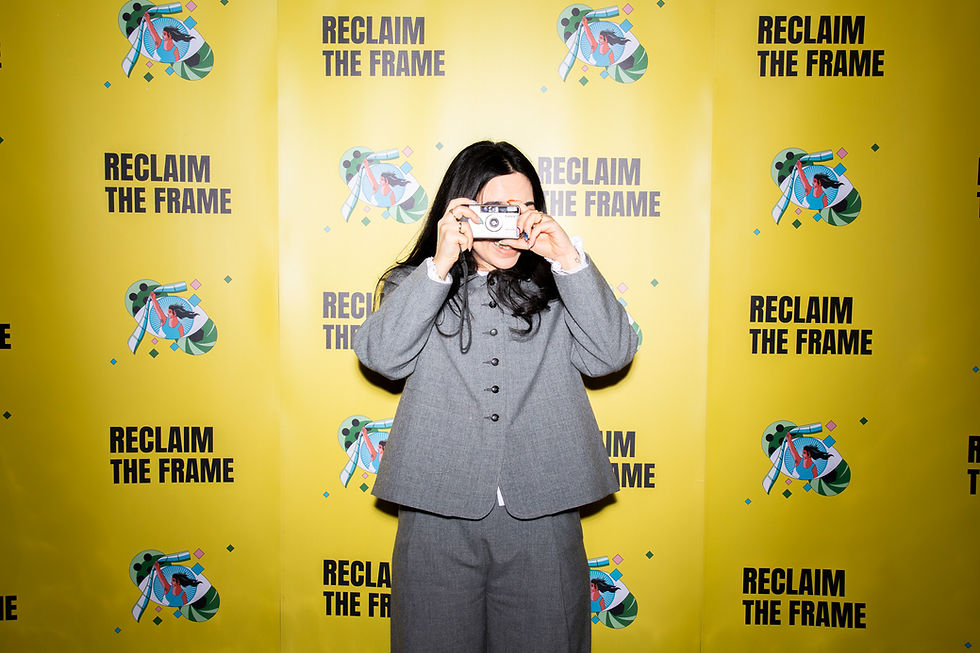what are we losing with every acquisition, with every gain – and why are we so desperate to lose it?
- Aug 1, 2018
- 3 min read
GENERATION WEALTH
The writer and theorist Gayatri Chakvravorty Spivak had this to say about privilege. She said: “We must unlearn our privilege as loss.” The power and wealth we’ve been fortunate enough to have fall at our feet robs us of insight, insulates us from experience, makes us blind, cuts off part of our humanity, you might even say steals our souls. And I think you could extend that to say: our gains are a loss. Success is loss.
Generation Wealth gives us this insight very clearly. No-one in its audience would, presumably, trade places with its tragic subjects, even or especially the wealthiest and most successful ones.
The film’s subjects have very different lives, but they share a great uncertainty about who they are, how they fit in. They share an obsession with ‘making it’ – that is, a short cut to certainty, to clarity about your status. But of course, as they all find out, there are no short cuts. They’re all forced to see that their wealth, even if they managed to hang onto it, was a form of loss.
To this conundrum, the film offers a solution so clearly correct that it’s a truism: “hey, spend time with your family and those you love!” It underscores that truism with sentimental music, and it works: tears came to my eyes at the scenes of people, including the filmmaker herself, returning to their families, their roots. Yet the film is brave enough to undercut that message by showing the other truth: a filmmaker herself just as hypnotised by images of lucre and lurid attainment as her subjects. Even if she’s self-aware enough to render those images grotesque, sordid, she’s just as obsessed with enacting that repetition. And we, the viewers, are likewise entranced: we can’t take our eyes away. No more than her subjects can, when they stand hypnotised by the images unveiled in her exhibition at the end of the film – especially the images of themselves. Images that they stare at either on the precipice of some great insight, or else uncomprehendingly, like Narcissus about to drown in the waters of his own reflection. We even see one of her subjects photographing and recording her own self-image, though the filmmaker chooses not to judge this mise-en-abyme too harshly, since we too are part of it. To put this another way: if it were so easy to “do the right thing and spend time with your loved ones”, we’d no doubt all be doing it, instead of finding various ways not to, such as running away to make films (or escaping one’s home life by filming one’s home life – as the filmmaker does, as I have done in my own work).
One critique of Greenfield’s approach is that it collapses class. The privileged Harvard educated subjects who have every chance of making it, including the filmmaker herself, aren’t the same as the girls from Nowhere, Idaho, working Vegas, or the porn scene, or the bus driving job. But in collapsing that difference it also cuts across that divide, at a time when things are so divided it might be more useful to see what unites us. And what unites us all, perhaps, is this. We’re all ensnared in the same value system and we all have to unlearn our relationship to wealth as loss. We have to see how we’re all in some sense turned into addicts. Addicted to money or status or food or drink or drugs or sex or gambling or the internet or entertainment or gossip or images or success or whatever else it might be. But no matter what it is we’re addicted to, it would seem, what we’re all really addicted to is loss. Because we all secretly know by now, surely, that when we compulsively repeat the thing we fantasise could fill the void, that we never do sate or satisfy ourselves, we only manage to make the emptiness that compels us seem even wider, deeper, greater. And that raises the question: what are we losing with every acquisition, with every gain – and why are we so desperate to lose it?
Josh Appignanesi directed the features Song Of Songs, The Infidel, and recently the creative documentary The New Man. His upcoming film Female Human Animal, a romantic thriller docufiction set in the real-life art world, premiered at Sheffield Doc/Fest and is released in October 2018.
@JoshAppFilm www.joshappignanesi.com


